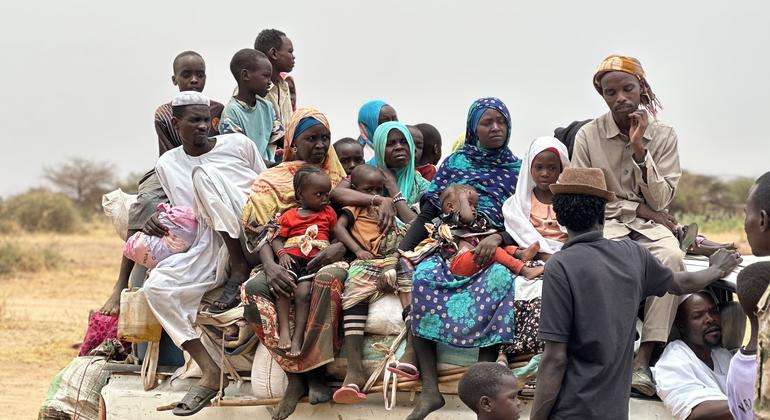The North Darfur state in Sudan is facing an alarming escalation of violence that has generated a new wave of forced displacements, affecting hundreds of thousands of people. These communities are forced to live in precarious conditions and are out of reach of essential humanitarian aid. Humanitarian organizations are working tirelessly to address this growing crisis, as the number of affected individuals continues to rise.
Recent attacks on camps that were already housing displaced persons, such as Zamzam and Abu Shouk, have forced between 400,000 and 450,000 people to flee their homes once again, according to information from the UN Office for the Coordination of Humanitarian Affairs in Sudan (OCHA). Many of these individuals are heading to the city of Tawila, the rugged terrain of Jebel Marra, and other remote areas, where they suffer from a lack of access to basic services such as medical care, clean water, and food.
Clementine Nkweta-Salami, the humanitarian coordinator in Sudan, emphasized that the situation is becoming increasingly dynamic and unpredictable due to constant hostilities and the fear of a broader offensive targeting El Fasher. Nkweta-Salami stressed that human rights violations are intolerable, emphasizing that civilians should not be the target of conflicts.
This new exodus follows a series of coordinated attacks earlier this month by troops loyal to the Rapid Support Forces, which resulted in the deaths of hundreds of people, including children and humanitarian workers. Since the conflict between the Sudanese Armed Forces and the Rapid Support Forces began in April 2023, more than 12.4 million people have been displaced, including over 3.3 million who have sought refuge in neighboring countries.
The situation is further complicated by the increasing food insecurity, as the displaced individuals are increasingly disconnected from supply chains. This increases the risk of epidemic outbreaks, malnutrition, and famine. Additionally, restrictions on access to El Fasher and its surroundings limit the capacity for humanitarian response, forcing authorities to demand sustained access to the region through existing humanitarian infrastructure.
The lack of funding threatens essential programs in the region. Nkweta-Salami has urged donors to ramp up their support, especially through the Sudan Humanitarian Fund, which is crucial to back response teams and mobilize essential supplies.
Violence has also escalated in West Darfur, where inter-communal clashes have led to the displacement of at least 146 families in the town of Jebel Moon, following an attack attributed to Arab tribes. This context exacerbates an already tense and unpredictable situation, as many displaced persons are forced to cross the border into Chad. However, verification limitations complicate obtaining accurate figures on victims and affected individuals.
Referrer: MiMub in Spanish










